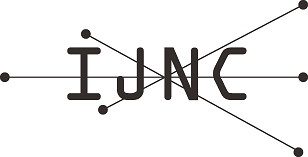Experimental Evaluation of a Hierarchical Chemical Computing Platform
Abstract
Chemical computing was initially proposed as a paradigm capturing the essence of parallel programs. Within such a model, a program is envisioned as a solution of information-carrying molecules, that, at run time, collide non-deterministically to produce new information. Such a paradigm allowed the programmers to focus on the logic of the problem to be solved in parallel, without having to worry about the implementation's considerations. Throughout the years, the model has been enriched with various features related to program structure, control and practicability. More importantly, the model has recently been raised to the higher order, increasing again its expressiveness. With the rise of service-oriented computing, such models have recently regained a lot of interest. They have been shown to provide adequate abstractions to enhance service-oriented architectures with autonomic properties such as self-adaptation, self-healing, or self-organisation.
However, the deployment of chemical programs over large-scale, distributed platforms is still a widely open problem, hindering the model to be leveraged in practice. This paper studies the possibility of building a distributed execution environment for chemical programs, to which end different approaches are discussed. Firstly, the paper envisions such a platform based on the distributed shared memory model to implement this solution. Such an approach leads to several issues that prevented us to finalise this approach and led to the exploration of a message-passing-based solution. Thus, secondly, and more importantly, a generic peer-to-peer-based runtime model is proposed.
Keywords
Full Text:
PDFRefbacks
- There are currently no refbacks.
